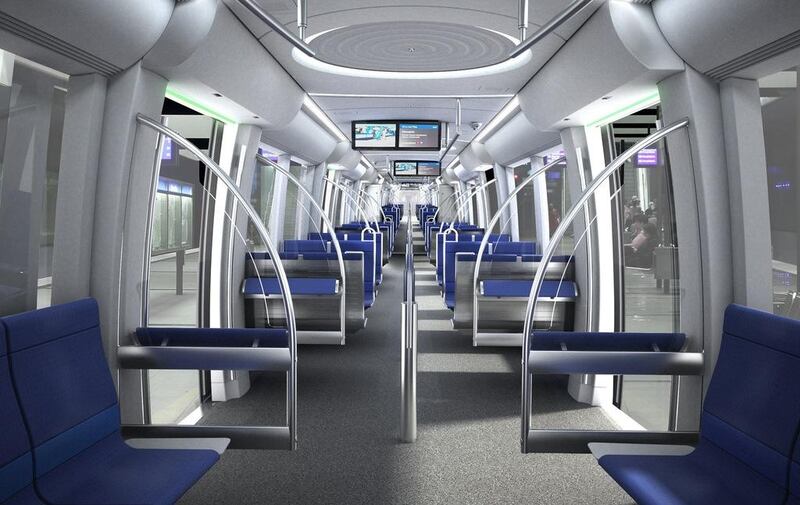The German engineering giant Siemens is among international contractors interested in building Abu Dhabi’s $7 billion metro and light rail project.
The project is expected to be complete by 2020 and will save the emirate billions of dirhams in time lost to traffic congestion.
“Abu Dhabi has pumped a lot of efforts in the last years to build highways, tunnels,” Joerg Scheifler, the chief executive for infrastructure and cities at Siemens in the Middle East, said in an intervew at a rail conference in the capital yesterday.
“When your population reaches 1 million, you should start building things like metros and trams. They have been talking about metro and trams for many years, but now they are serious.”
Siemens notified the Abu Dhabi authorities a couple of months back of its readiness to undertake the engineering, procurement and construction and is now waiting for the prequalification process that is set to be complete in the fourth quarter, Mr Scheifler said. The companies that prequalify will be allowed to bid for contracts in a tender process that may start som etime next year, he added.
Funding for the project was approved by Abu Dhabi’s Executive Council in March 2012. The first phase of the metro is expected to run 18 kilometres between Zayed Sports City on the south of Abu Dhabi island and Mina Port to the north with five kilometers below ground and 13km above ground.
The project had its roots in a master plan for transport that was announced in 2009. It has moved slowly since then amid economic woes and uprisings in the Arab world but Abu Dhabi is now, like many other Gulf states, getting serious about public transport.
“If we look in the region, the key players, Saudi, Qatar and finally now Abu Dhabi, they are seriously talking about improving transport,” Mr Scheifler said. “In Qatar, it’s very much driven by the World Cup. In Saudi, Jeddah, Riyadh and Medina cannot cope any more with normal traffic. They have to do something.”
The 131km Abu Dhabi metro and light rail project will be split into three separate contracts that comprise civil works for above-ground structures, rail above ground and underground construction, according to the Middle East Economic Digest. The preliminary design contract was awarded to a consortium made up of Aecom, Parsons Brinckerhoff and DB International, Meed said.
Abu Dhabi’s Department of Transport estimates that the city will save Dh5.9 billion of wasted traffic time by 2030. The UAE is investing more than Dh82.3 billion in five different railway projects overseen by the National Transport Authority in an attempt to reduce dependency on cars, traffic accidents and congestion as well as carbon emissions.
mkassem@thenational.ae





